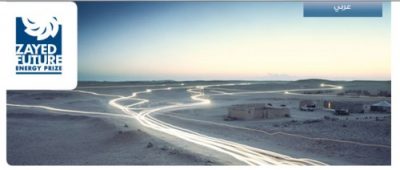 Representatives from six Arab Gulf countries that form the Gulf Cooperation Council (GCC) recently expressed concern about the Bushehr nuclear power plant in Southwest Iran after an earthquake with a magnitude of 6.3 on the Richter scale struct the region earlier this year.
Representatives from six Arab Gulf countries that form the Gulf Cooperation Council (GCC) recently expressed concern about the Bushehr nuclear power plant in Southwest Iran after an earthquake with a magnitude of 6.3 on the Richter scale struct the region earlier this year.
Since Bahrain, Kuwait, Oman, Qatar, Saudi Arabia and the United Arab Emirates all share the Arabian/Persian Gulf with Iran, a radioactive leak from the Bushehr plant constructed in 2011 could potentially effect all seven countries.
Some of the GCC member countries raised their concerns last month at an annualInternational Atomic Energy Agency (IAEA) meeting in Vienna, Austria.
Spooked by the April 9 earthquake in Southwestern Iran, the GCC countries formed an emergency meeting to discuss the potential ramifications of radioactive material leaking in the water than binds them all.
Mohammad Ahmadian, the deputy director of Iran’s Atomic Energy Organization, brushed off their worries in a televised interview, according to Scidev.net.
Later, in an interview with local press, Ahmadian claimed that the Bushehr plant was constructed to withstand earthquakes with a magnitude of up to 8 on the Richter scale. He also said that it will shut itself down in the event of any earth movement.
Despite claims that the plant is perfectly safe, GCC’s assistant secretary general Abdel Aziz Aluwaisheg is not convinced, and implored Iranian officials to allow an international team to inspect the site.
“Iran should be more forthcoming in allowing international inspection of Bushehr to reassure its own citizens and neighbours about the safety of the plant,” he told Arab News.
Farouk El-Baz, director of the Center for Remote Sensing at Boston University, warns that the environmental impact of the Bushehr plant could be devastating if it is neglected.
He told Scidev.net that the Gulf countries are well within their rights to expect safety assurances from IAEA experts given that some of the components of the Iranian nuclear plant are quite old. But another expert, Mohamed Salama, emeritus professor at Egypt’s Nuclear and Radiological Regulatory Authority, urges calm.
Citing the Fukushima disaster in Japan, Salama notes that the plant survived the earthquake, but that the resulting tsunami caused most of the damage to the reactor.
“The real disaster came from the tsunami that swept over the sea wall and knocked out the backup generators, leaving the reactors without their cooling systems. The reactors then overheated, there were explosions and radioactive material escaped.”
He also told the paper that Iran wouldn’t have spent $10 billion on a plant that would be vulnerable to seismic activity.
:: Scidev.net
Image via Telegraph




Businessmen are always looking for ways to cut costs and that is why ALL nuclear power plants leak.